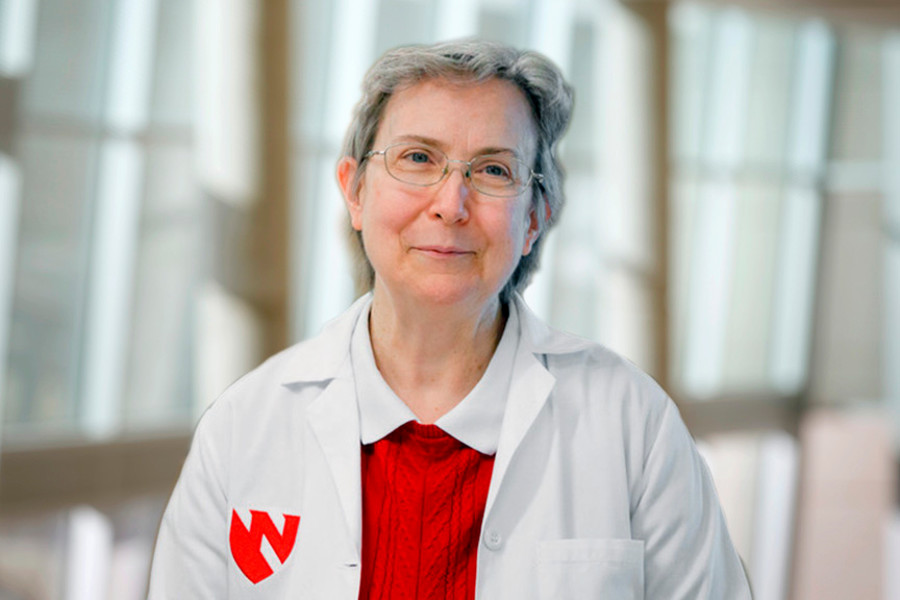Joyce Solheim, PhD
Director, IGPBS-Cancer Research Doctoral Program, Cancer Research M.S. Program, and Eppley Summer Undergraduate Research Program
Associate Director for Training and Education, Fred & Pamela Buffett Cancer Center
Professor, UNMC Eppley Institute for Research in Cancer and Allied Diseases
Research focus: Mechanisms regulating the immune response to tumors and infectious pathogens, and development of new immunotherapies

Joyce Solheim, PhD, is a professor in the UNMC Eppley Institute for Research in Cancer and Allied Diseases. She also serves as courtesy faculty for the UNMC departments of Biochemistry & Molecular Biology, and Pathology and Microbiology.
- PhD, Southern Illinois University, 1992
University of Nebraska Medical Center
986805 Nebraska Medical Center
Omaha, NE 68198-6805